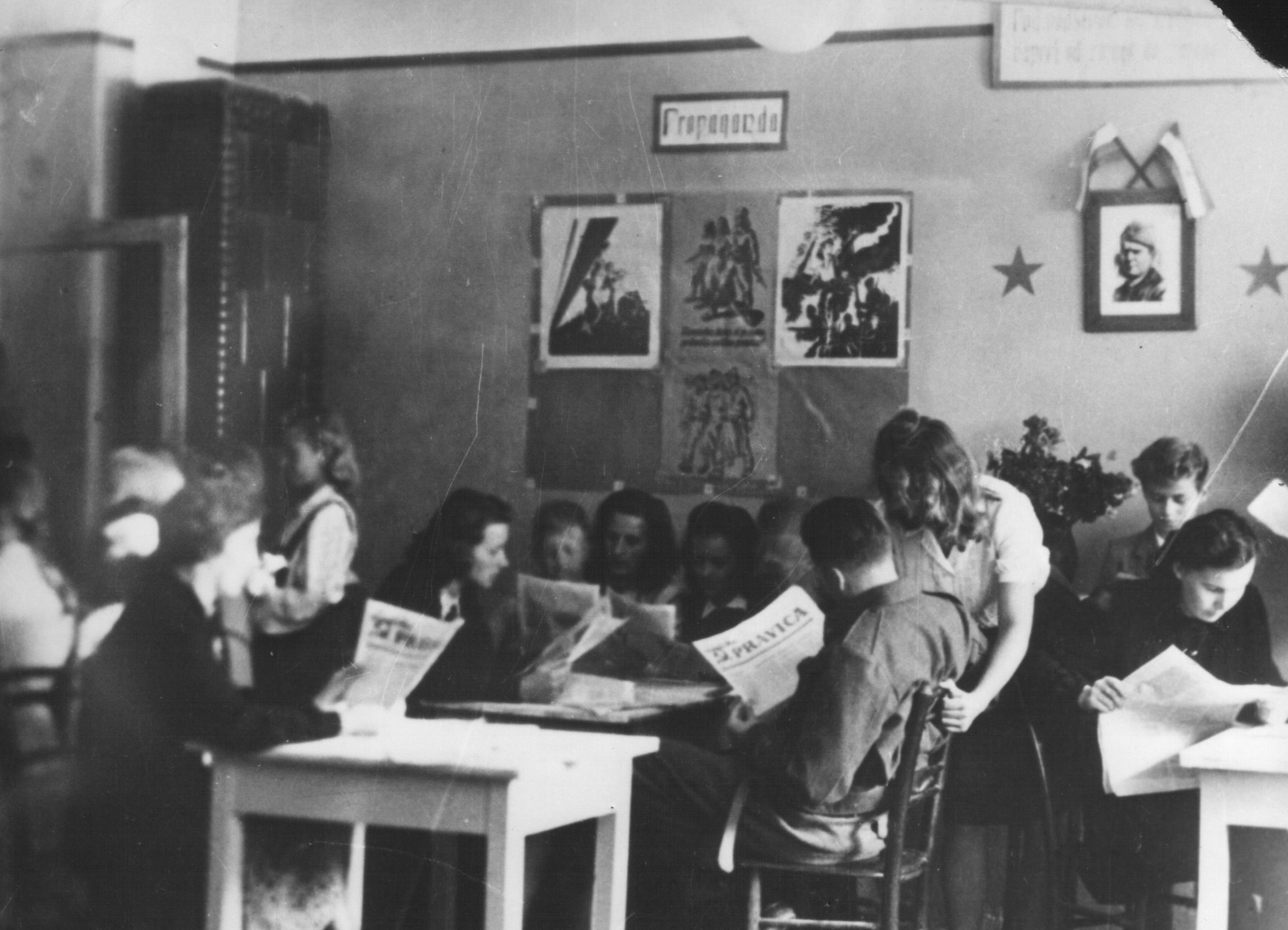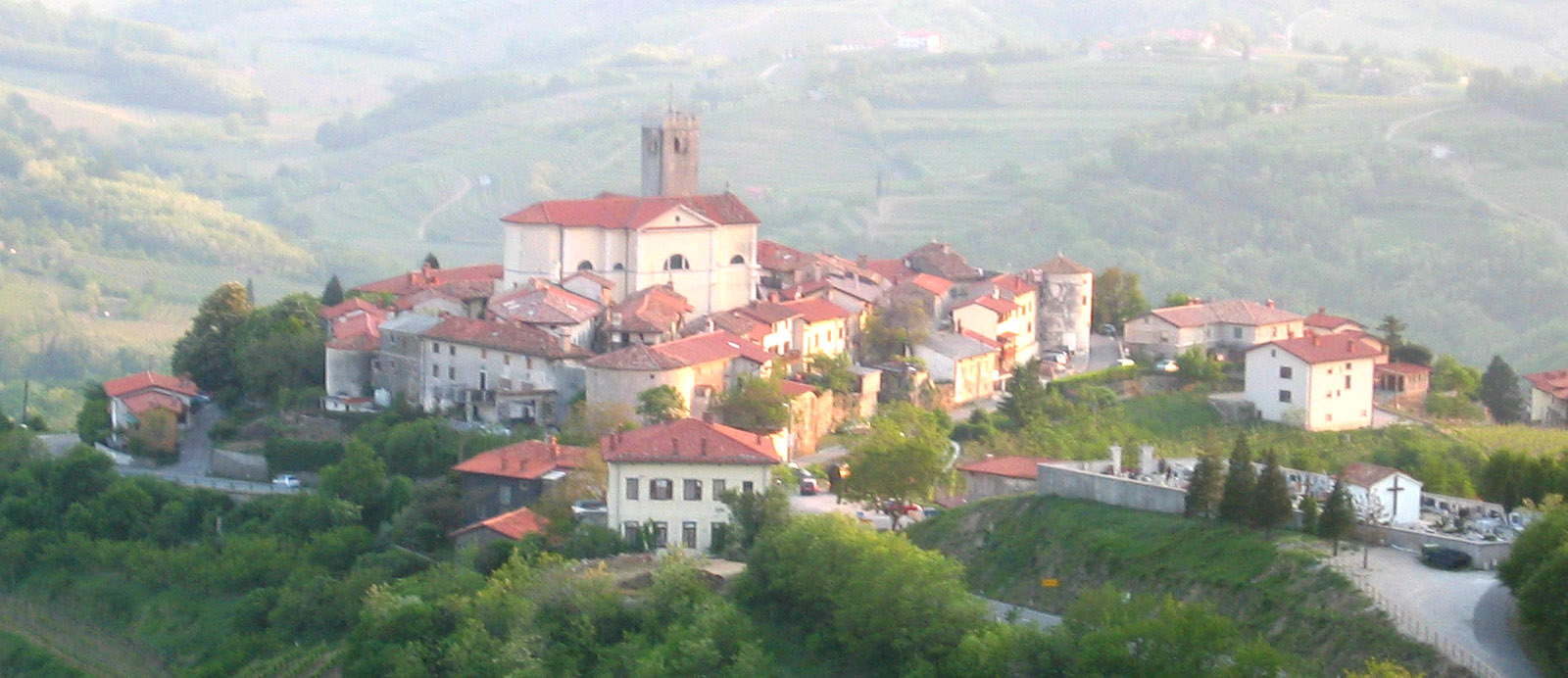|
Miran Hladnik
Miran Hladnik (born 19 December 1954) is a Slovenian literary historian, specializing in quantitative analysis of Slovene rural stories and in Slovene historical novel. Life and work Miran Hladnik was born in Jesenice, People's Republic of Slovenia (then part of the Federal People's Republic of Yugoslavia). He studied at the University of Ljubljana, where he graduated from comparative literature and Slovene language in 1978. In 1984/1985, Hladnik spent the academic year at University of Kansas, United States, as Fulbright teaching assistant, teaching Slovene language at the university and also teaching the language in both Kansas City and Pittsburgh, to the local American Slovenes communities. In 1988, Hladnik obtained his PhD at the University of Ljubljana with a thesis on Slovene rural story. The 26 million words Slovene rural stories corpus is now part of FidaPLUS. In 1989/1990, Hladnik spent the academic year at University of Göttingen, Germany, and again as Fulbright t ... [...More Info...] [...Related Items...] OR: [Wikipedia] [Google] [Baidu] |
Jesenice, Jesenice
Jesenice (, german: Aßling''Leksikon občin kraljestev in dežel zastopanih v državnem zboru'', vol. 6: Kranjsko. 1906. Vienna: C. Kr. Dvorna in Državna Tiskarna, p. 144.) is a Slovenian town and the seat of the Municipality of Jesenice on the southern side of the Karawanks, bordering Austria to the north. Jesenice is known as the Slovenian home of mining and iron making industries, its largest steel company Acroni, and its ice hockey club, HK Acroni Jesenice. Historically, Jesenice's ironworks and metallurgy industries were the driving force of the town's development. History Name Jesenice was attested in written sources in 1337 as ''villa de Jesenicza'' (and as ''Assnigkh'' and ''Asnigkh'' in 1381, and ''Jasnickh'' and ''Aisnstnick'' in 1493–1501). The name is derived from ''*Jesen(ьn)icě'', a locative singular form of ''Jesenik'' (< ''*Esenьnikъ''). The suffix ''-ě'' became ''-i'' in the local dialect and was reinterpreted as a nominative masculine plural, the accusa ... [...More Info...] [...Related Items...] OR: [Wikipedia] [Google] [Baidu] |
University Of Göttingen
The University of Göttingen, officially the Georg August University of Göttingen, (german: Georg-August-Universität Göttingen, known informally as Georgia Augusta) is a public research university in the city of Göttingen, Germany. Founded in 1734 by George II, King of Great Britain and Elector of Hanover, and starting classes in 1737, the Georgia Augusta was conceived to promote the ideals of the Enlightenment. It is the oldest university in the state of Lower Saxony and the largest in student enrollment, which stands at around 31,600. Home to many noted figures, it represents one of Germany's historic and traditional institutions. According to an official exhibition held by the University of Göttingen in 2002, 44 Nobel Prize winners had been affiliated with the University of Göttingen as alumni, faculty members or researchers by that year alone. The University of Göttingen was previously supported by the German Universities Excellence Initiative, holds memberships ... [...More Info...] [...Related Items...] OR: [Wikipedia] [Google] [Baidu] |
Radiotelevizija Slovenija
Radiotelevizija Slovenija ( en, Radio-Television of Slovenia) – usually abbreviated to RTV Slovenija (or simply RTV within Slovenia) – is Slovenia's national public broadcasting organization. Based in Ljubljana, it has regional broadcasting centres in Koper and Maribor and correspondents around Slovenia, Europe, and the world. RTV Slovenija's national radio services operate under the name , while the television division carries the name or . The names are sometimes Anglicized as ''Radio Slovenia'' and ''TV Slovenia'', respectively. There are three national and four regional radio services, which can all be heard online as well. RTV Slovenija also finances the RTV Slovenia Symphony Orchestra and the RTV Slovenia Big Band. The legal foundation for the institution is the Radiotelevizija Slovenija Act ( sl, Zakon o Radioteleviziji Slovenija). It is the only public nonprofit broadcasting organization in Slovenia to operate both radio and television stations. The law also requ ... [...More Info...] [...Related Items...] OR: [Wikipedia] [Google] [Baidu] |
Delo (Slovenia)
''Delo'' ( en, Labour) is a national daily newspaper in Slovenia. For more than 60 years, ''Delo'' has been involved in active co-creation of the Slovenian public space. It covers politics, economics, sports, culture and social events in Slovene. In addition to Slovenia, the paper is available in several Croatian cities and in Belgrade, Serbia. It is based in Ljubljana. History ''Delo'' was first published on 1 May 1959 when the newspapers '' Ljudska pravica'' ("The People's Right"), which was published since 1934, and '' Slovenski poročevalec'' ("The Slovene Reporter"), established in 1938, both the newspapers of the Communist Party of Slovenia, merged. Among the chief editors were Dušan Benko, Darijan Košir, Peter Jančič, and Uroš Urbas. Profile ''Delo'' is published in broadsheet format by media house Delo which also owns newspaper ''Slovenske novice''. It offers content in print and also on web, mobile and tablet platforms. It publishes a mixture of different media, ... [...More Info...] [...Related Items...] OR: [Wikipedia] [Google] [Baidu] |
RTV Slovenia
Radiotelevizija Slovenija ( en, Radio-Television of Slovenia) – usually abbreviated to RTV Slovenija (or simply RTV within Slovenia) – is Slovenia's national public broadcasting organization. Based in Ljubljana, it has regional broadcasting centres in Koper and Maribor and correspondents around Slovenia, Europe, and the world. RTV Slovenija's national radio services operate under the name , while the television division carries the name or . The names are sometimes Anglicized as ''Radio Slovenia'' and ''TV Slovenia'', respectively. There are three national and four regional radio services, which can all be heard online as well. RTV Slovenija also finances the RTV Slovenia Symphony Orchestra and the RTV Slovenia Big Band. The legal foundation for the institution is the Radiotelevizija Slovenija Act ( sl, Zakon o Radioteleviziji Slovenija). It is the only public nonprofit broadcasting organization in Slovenia to operate both radio and television stations. The law also requ ... [...More Info...] [...Related Items...] OR: [Wikipedia] [Google] [Baidu] |
Toussaint Hočevar
Toussaint Hočevar (25 June 1927 - 21 April 1987) or Toussaint Hocevar was a Slovenian American economic historian. Biography Hočevar was born in Ljubljana, Slovenia, then part of the Kingdom of Serbs, Croats and Slovenes. He spent his childhood in the small town of Vrhnika near Ljubljana, where his father served as mayor. Between 1937 and 1941 Toussaint attended an elite private Roman Catholic high school in the town of Bol, Croatia, Bol on the Dalmatian island of Brač administered by the Dominican order. After the Axis powers, Axis invasion of Yugoslavia in April 1941, he moved back to Slovenia and continued his studies at the Bežigrad Grammar School in Ljubljana, graduating in 1945. In 1946 he enrolled at the University of Ljubljana. The same year, however, he decided to leave Communist Yugoslavia and emigrate to the neighbouring Austria. In 1951 he graduated from economy at the University of Innsbruck. The same year he moved to the United States, continuing his studies at ... [...More Info...] [...Related Items...] OR: [Wikipedia] [Google] [Baidu] |
Alojz Gradnik
Alojz Gradnik (August 3, 1882 – July 14, 1967) was a Slovenian poet and translator. Life Gradnik was born in the village of Medana in the Gorizia Hills region, in what was then the Austro-Hungarian Empire and is today in the Municipality of Brda of Slovenia. His father was a Slovene from Trieste who came from a poor working-class background, but created considerable wealth by winemaking. His mother was an ethnic Friulian from the County of Gorizia and Gradisca. His younger brother Jožef later served as mayor of the village. Gradnik attended the multilingual State Gymnasium in Gorizia. He lived in a student home run by the Catholic Church. Among his friends from this period were Avgust Žigon, who later became a renowned literary scholar, the Slovene writer Ivan Pregelj and the Friulian prelate Luigi Fogar, who later served as bishop of Trieste. After finishing high school, he went to study law in Vienna. After graduation in 1907, he served as a district judge in the I ... [...More Info...] [...Related Items...] OR: [Wikipedia] [Google] [Baidu] |
Wikiversity
Wikiversity is a Wikimedia Foundation project that supports learning communities, their learning materials, and resulting activities. It differs from Wikipedia in that it offers tutorials and other materials for the fostering of learning, rather than an encyclopedia; like Wikipedia, it is available in many languages. One element of Wikiversity is a set of ''WikiJournals'' which publish peer-reviewed articles in a stable, indexed, and citable format comparable with academic journals; these can be copied to Wikipedia, and are sometimes based on Wikipedia articles. As of , there are Wikiversity sites active for languagesWikimedia's MediaWiki API:Sitematrix. Retrieved from Data:Wikipedia statistics/meta.tab comprising a total of articles and recently active editors.Wikimedia's MediaWiki API:Siteinfo. Retrieved from Data:Wikipedia statistics/data.tab History Wikiversity's data phase officially began on August 15, 2006, with the English language Wikiversity. The ide ... [...More Info...] [...Related Items...] OR: [Wikipedia] [Google] [Baidu] |





